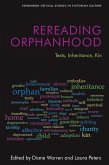'This is an exceptionally lucid, detailed introduction to the disruptive thought of Michel Serres. Christopher Watkin opens his admirable account by outlining Serres's disagreements with Descartes and Plato, and with Serres's adaptation of Leibnizian monadology. Rethinking space and time, language, quasi-objects and a new broad scope notion of ecology fill out an intense engagement with Serres's powerfully enabling legacy. Both general readers and specialists are in Watkin's debt for thus providing access to the strange new world of Serresian philosophy.' Joanna Hodge, Manchester Metropolitan University 'Christopher Watkin has written a marvellously lucid and accessible guide to the prodigious work of Michel Serres. Watkin takes account expertly of the whole spread of Serres's long career and breathtakingly various oeuvre, navigating through it not by text or theme, but by "figures of thought". This is a brilliant device that allows him to pay attention not just to the matter of Serres's thought but also to its particoloured styles and textures.' Steven Connor, University of Cambridge A critical assessment of this important contemporary thinker Christopher Watkin provides the first comprehensive introduction to Serres' thought from The System of Leibniz (1968) through to his final publications in 2019. Working from the original French, he engages with both translated and major untranslated texts, providing a true overview of Serres' thinking. Using diagrams to explain Serres' thought, the first half of the book carefully explores Serres' 'global intuition' - how he understands and engages with the world - and his 'figures of thought', the repeated intellectual moves that characterise his unique approach. The second half explores in detail Serres' revolutionary contributions to the areas of language, objects and ecology. Watkin shows that Michel Serres has produced a cross-disciplinary body of work that provides a crucial and as yet under-exploited reference for current debates in post-humanism, object oriented ontology, ecological thought and the environmental humanities. Key Features - The first assessment of Serres' thought as a whole - Brings Serres into conversation with other major thinkers such as Jacques Derrida, Gilles Deleuze, Michel Foucault and Jean-Luc Nancy - Focuses on the repeated moves that characterize Serres' thinking, making his writing more accessible for scholars across disciplines and showing how his ideas can be brought to bear on new areas Christopher Watkin is Senior Lecturer in French Studies at Monash University, Melbourne, Australia. Cover image: (c) samphan/Adobe Stock Cover design: [EUP logo] edinburghuniversitypress.com ISBN 978-1-4744-0573-7 Barcode
Hinweis: Dieser Artikel kann nur an eine deutsche Lieferadresse ausgeliefert werden.
Hinweis: Dieser Artikel kann nur an eine deutsche Lieferadresse ausgeliefert werden.








